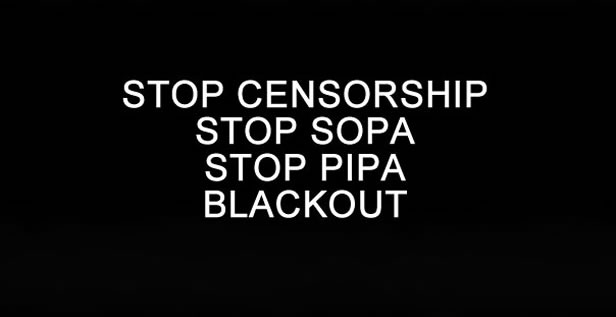Features
PIPA, SOPA, and how it could stifle internet freedom

Today is the big Internet “blackout” day. Websites from Wikipedia and Reddit to hip-hop blog heavyweight Nah Right have exchanged their usual content for information on two bills of Internet legislation currently in congress. The blackouts are in protest of two different bills: the senate legislation, Protect-IP Act (PIPA) and the house of representative’s bill, the Stop Online Piracy Act (SOPA). SOPA is certainly the more egregious of the two bills, sponsored by the good Texan Republican Lamar Smith. Smith, who I’m sure thinks he’s some sort of Clint Eastwood riding a digital horse across the internet version of the wild west, has good intentions: preventing copyright infringement and the sale of illegal goods.
But SOPA has a few provisions in it that are making some major Internet companies like Google and Wikipedia a bit nervous. For starters, SOPA would allow for sites that are supposedly piratical – hosting copyright infringing content or selling illegal goods- to be “blacklisted.” SOPA hopes to blacklist these “rogue” sites by having Internet service provider’s block user access to them. In addition, they would compel companies to stop advertising on these sites, cutting revenue and visitors in order to force the site to either comply, or shut down completely.
Now, no one is asking immunity for these sites, but one major issue with SOPA/PIPA is that they give unprecedented jurisdiction for companies to ask for court orders against a website, that instead of being served on the offending site, is served on the company that provides Internet service. There are also some security issues involving Doman Name Server encryption that has too much technical jargon to parse through here.
Sites like Google that oppose SOPA believe it would crush future websites that champion innovation and progress. These types of sites may unintentionally tread in legal grey areas at the start. In addition, SOPA’s broad and vague language could diminish the web presence of many popular sites that host user generated content.
Because the content of sites like YouTube and Reddit are decided and created by users, these sites run the risk of hosting material without copy written consent. Though through current legislation these sites comply with copyright laws by removing any controversial material when notified of its presence on the site, SOPA/PIPA would give some extreme power to companies who hold the copy right’s.
People fear that if SOPA were passed, a site like YouTube wouldn’t even be able to get off the ground. An article ran in the January 16th issue of The New Yorker, (“Streaming Dreams”) details the start of YouTube and its “laissez-faire” attitude towards copy written material. One of the sites biggest early hits was the SNL digital short “Lazy Sunday.” YouTube is one of the most ubiquitous Internet sites – everyone uses it– a site like that would not exist under SOPA.
Popular blog sites like WordPress and Tumblr would also be affected. The sharing of information would be hindered, exposure to new artists would be limited, and all at the behest of a few anachronistic industries like the Motion Picture Association of America and the Recording Industry Association of America.
SOPA/PIPA underline a major issue in American culture today. Free enterprise is championed, yet the already established industry titans constantly chew up innovative technologies and business. Start-ups can’t compete with established industry, it’s an issue of means, and so progress is held in check by the already established industry.
For more information on SOPA/PIPA , read an in-depth FAQ from C-Net. And if you think that PIPA/SOPA will hurt sites that you love like we do please sign Google’s petition today.